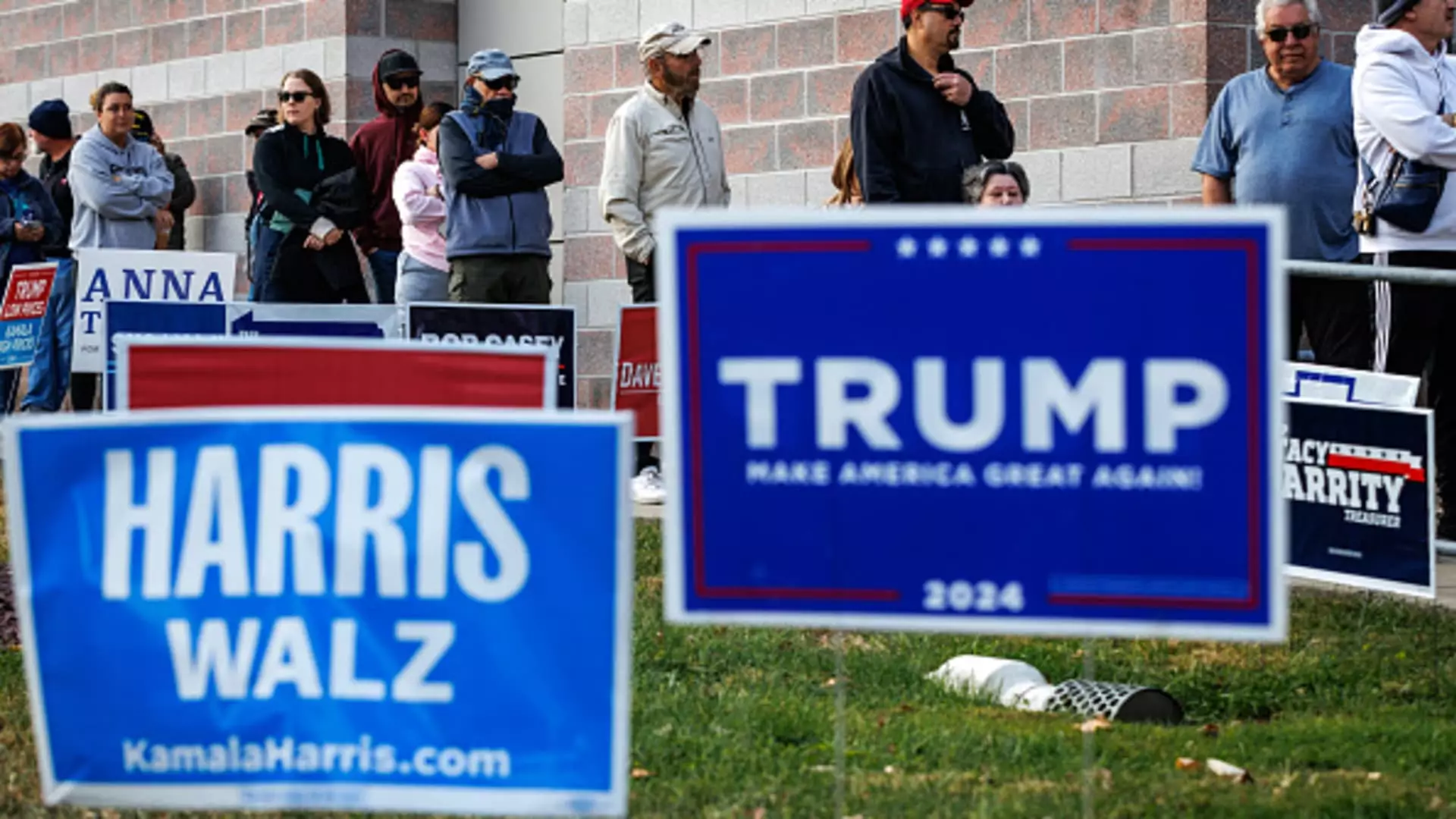As political landscapes shift and the voices of different demographics resonate through electoral outcomes, an important focal point remains the concerns and preferences of older voters, particularly those aged 50 and above. Recent polling by AARP has unveiled significant sentiments within this demographic surrounding their financial wellbeing and political alignment, shedding light on the growing apprehensions that are too often overlooked in broader discussions of electoral dynamics.
The AARP commissioned a comprehensive survey following the recent elections, revealing a disheartening perspective among older voters regarding their financial situations. The inquiry unearthed that 47% of those aged 50 and older perceive themselves as financially worse off compared to four years prior. When this data is analyzed alongside swing voters within the same age group, the rate escalates to 55%. This sentiment is alarming, particularly for political strategists who recognize the critical role that this demographic plays in shaping electoral outcomes. Historically, older voters lean conservatively, but the prevailing economic worries may prompt a reevaluation of their allegiances.
The polling revealed a distinct tendency for these voters to express deep anxiety regarding personal financial security—62% acknowledged their worry in a prior survey. Reflecting on issues of inflation and rising costs, which have emerged as authoritative concerns in recent years, older voters represent a pivotal constituency that cannot be dismissed lightly in future political campaigns.
Economic issues have dominated the narratives leading into elections, and for voters aged 50 and over, personal finances weigh heavily on their decision-making processes. The AARP data reveals that food costs top the list of financial worries, with 39% of respondents highlighting this issue as a primary concern. Other significant worries include health care costs, housing expenses, and increasing utility bills. On Election Day, this economic focus was evident, with 55% of older voters prioritizing financial issues like job security, inflation, and Social Security when casting their votes.
Interestingly, partisan lines seem to fracture when examining specific economic issues. While Republicans generally performed well on personal economic concerns, Democrats maintained a slight edge on Social Security. This division points to the dynamics of campaigning, indicating that the debate surrounding Social Security will be vital for both parties in upcoming elections.
A particularly pressing issue at the forefront of older voters’ concerns is the future of Social Security and Medicare. With projections indicating that the Social Security trust fund could run dry by 2033—leading to reduced benefits for millions—the urgency surrounding this issue cannot be overstated. Approximately 42% of individuals aged 65 and older rely on Social Security for at least half of their income, showcasing the program’s essential nature for retirees.
Policymakers’ unfulfilled promises during campaigning, particularly regarding plans to fortify Social Security, underline the paradox older voters face. While candidates across the board pledge to protect these programs, tangible solutions remain absent. This void leads to an escalating sense of uncertainty among voters who depend on Social Security for their very survival in retirement.
The recent AARP polling offers a window into the minds of older voters, highlighting a collective feeling of economic insecurity and a nuanced relationship with political candidates. With critical voting issues like Social Security and Medicare facing imminent challenges, the implications of this data extend beyond mere numbers; they represent a call to action for political leaders to listen, respond, and adapt to the needs of older Americans.
As we approach future elections, understanding the economic landscape and the sensitive concerns of older voters will be essential for both parties. The ability to translate economic worries into actionable policies will not only influence election outcomes but may also determine the future wellbeing of millions of American retirees. The time for decisive, transparent measures to address these issues is now, underscoring the need for a thorough reevaluation of priorities at all levels of government.

